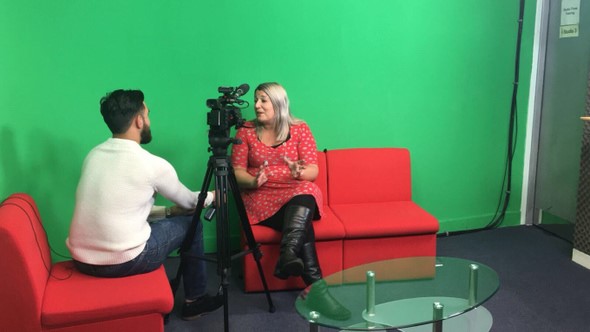Just 2 years ago I had one of my more serious breakdowns, leading to a diagnosis of borderline personality disorder in January this year. Life had been unbearable since my mum had passed away, and then I lost my best friend to suicide. I was heartbroken and these events further triggered my mental health to deteriorate. Then began a slower, much longer breakdown as I began the wait for treatment, still a two year wait before I can expect to receive Dialectical Behaviour Therapy, DBT, the treatment recognised to help those with BPD.
As I draw to the end of this first year since my diagnosis, there has been one thing that has genuinely saved my life, blogging. I almost feel embarrassed to say it, I’m a parent, a daughter, a wife, a friend, a sister, I’ve had jobs, been needed and yet at that point when everything has become too much, it has often been putting pen to paper, or more often type to web, when I have written how I have felt, my every emotion, good and bad everything, in a flurry of words, that has helped most, choosing the next day to share it or keep it to myself.
Some things have been far too horrific to share, I’d be ashamed to have it out in the public domain, but I have been honest, raw and open many times. I’ve even regretted it at times and I know close family and friends have worried about me. But for me the support I have received when I have posted a blog, somehow it takes away some of the ownership. I’ve felt relieved sharing such experiences and feelings, to find out I am not the only one to have felt that way.
As I’ve blogged over the last year, I’ve been encouraged to go back to university to study with the Open University, thanks in part to the support I have had from organisations like the Huff Post who have published my work.
Last week I was asked to speak in December at a mental health conference focusing on blogging. I will be sharing how for me it has saved me and been my temporary therapy while I await the help I desperately need in order to continue my recovery. How amazing to find now that blogging, alongside personal journaling and keeping a diary, can help not just others by reading it, but it can help the person writing it in their journey of recovery.
I can’t lie, I’m terrified. Standing up in front of all those people to share my story, but I’m also proud. I’m proud that I’m still here and that when there was crisis I found my own solution, and believe me blogging was better than some I had contemplated. I’m also frustrated that a year on, I have still not been assessed for DBT therapy and that I potentially have another year to wait.
I’m sure that blogging can’t save everyone – how wonderful if it could – but I do believe the power of sharing what’s going on in your head, in whatever form, can be.
(If you would like to hear Sarah speak, you can find details on the conference here: https://www.mhbc2018.psychreg.org/. The event will be held in collaboration with Get Psyched and PsychReg as the 1st mental health bloggers conference in London)



